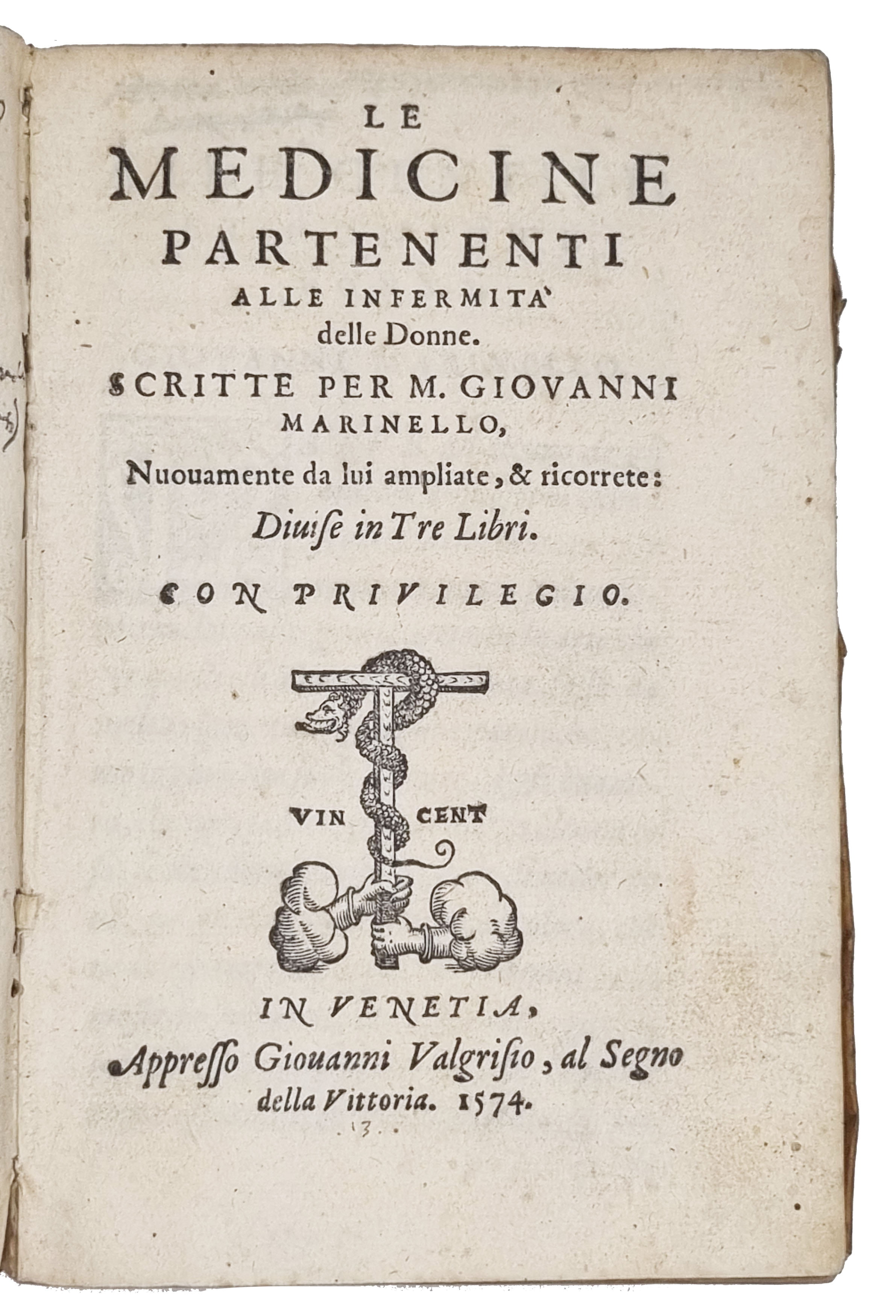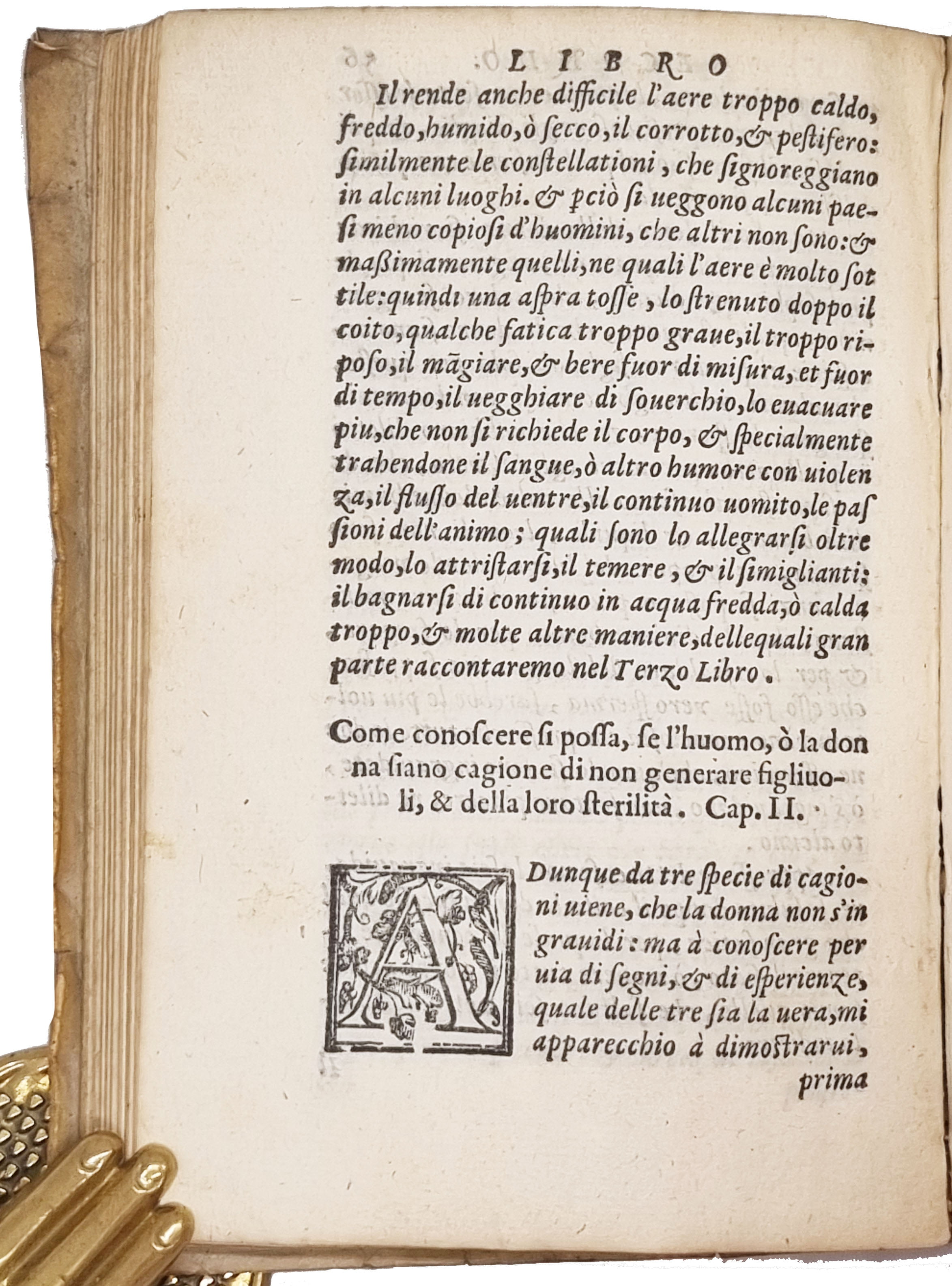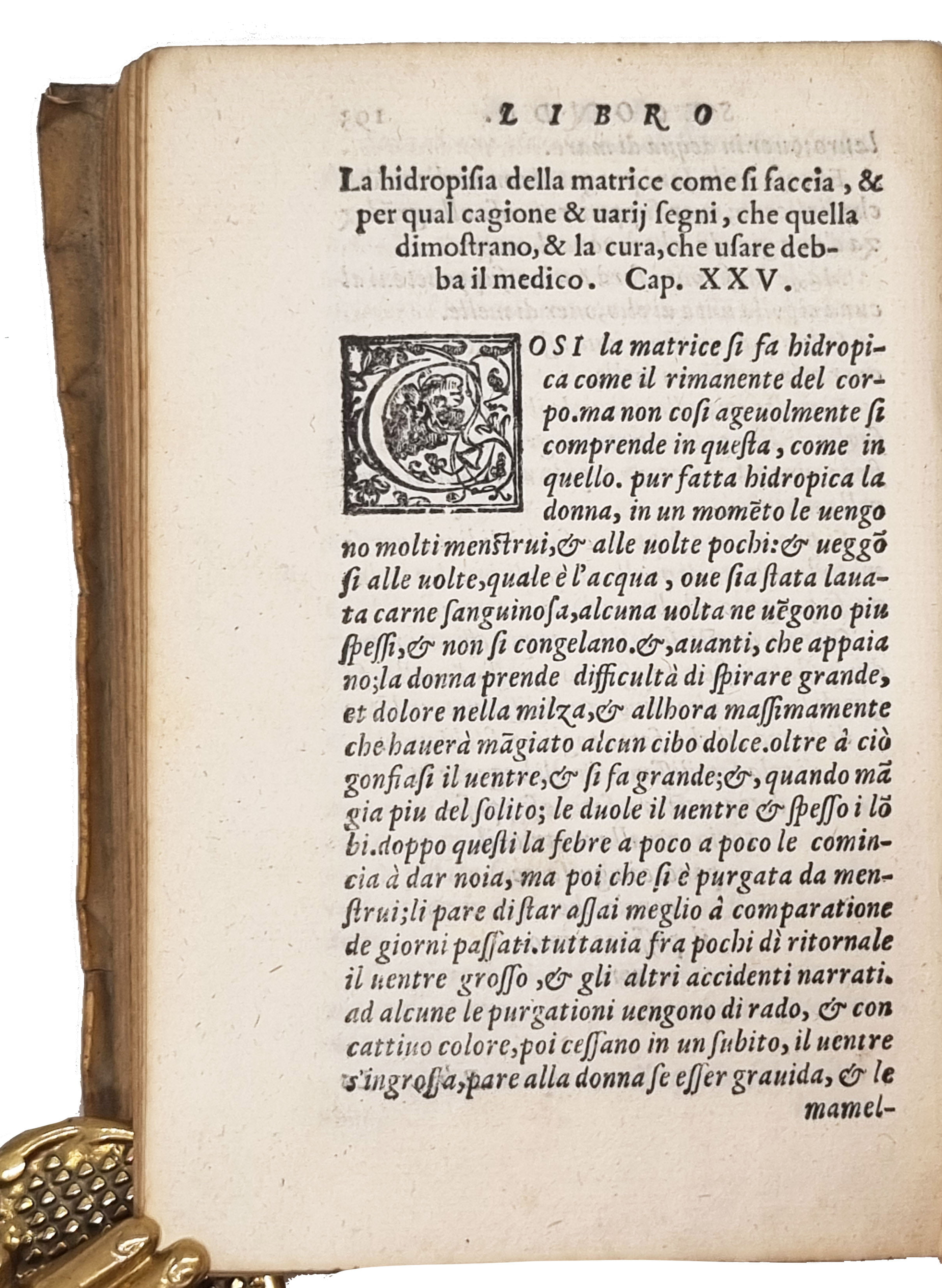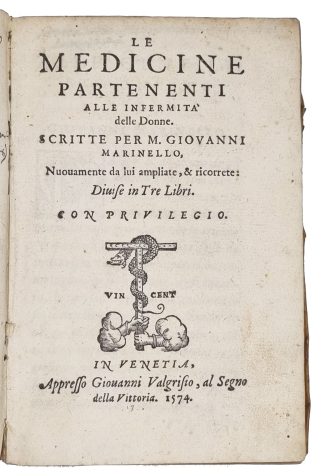MARINELLI, Giovanni.
VERNACULAR OBSTETRICS
Le medicine partenenti alle infermità delle donne.
Venice, G. Valgrisi, 1574.£3,250.00
8vo. pp. [16], 329, 47, last two ll. blank. Italic letter. Woodcut printer’s device to title, decorated initials and ornaments. Occasional very light age yellowing, the odd marginal thumb mark, couple of gatherings a trifle browned, very faint water stain to upper outer margin of 2R and 2S. A very good, clean copy in contemporary vellum, remains of ties, yapp edges, early ms title to lower edge, later ms title to spine, minor loss at foot, ink splash to upper cover, upper hinge detaching (but holding), C18-C19 ms bibliographical notes and Joseph Baers’ stamp to front pastedown, later bookplate to ffep, crossed-out early ms ownership at head of a2, slightly later 2-line ms recipe to rear ep.
A very good, clean copy of the enlarged and revised edition of this popular vernacular manual on women’s illnesses, gynaecology and obstetrics – a unique witness to Renaissance marital habits and sexual ‘mores’. Giovanni Marinelli (fl. mid-C16), from Modena, was a renowned physician and natural philosopher, and the author of several works, including a couple on women’s beauty and health. His daughter, Lucrezia, wrote a famous treatise in defence of women. First published in 1563, ‘Le medicine’ only ever appeared in the vernacular, for the use of physicians, midwives and laywomen. This encyclopaedia of women’s (and their husbands’) well-being, spans a variety of conditions accompanied by long disquisitions on aetiology, treatments and remedies, from ‘illnesses which can untie the knot of marriage’ (e.g., weakness caused by excessive intercourse, urinating during intercourse or in bed, expulsion of semen ‘not caused by sexual arousal’, erectile disfunction, bad breath), addressing men’s conditions too, with most interesting observations on the social conventions of C16 marital life; male and female sterility (caused by organ conditions, semen that does not generate, excessive body fat, weakness, irregular menstruation); the ‘regimen sanitatis’ of pregnant women and the symptoms of pregnancy (e.g., desire for unnatural food like ash or moist soil); labour, delivery and how to deal with difficult situation, such as still births. An early annotator of this copy noted a short (unrelated) recipe: ‘spinocervino boiled in alum for painting paper yellow’. A most interesting work.
4 copies recorded in the US. USTC 840971; EDIT16 35777; Durling 2958; Wellcome I, 4062; Heirs of Hippocrates 377 (later ed., mentioned only); Erdmann, p.180. Not in Osler.In stock





